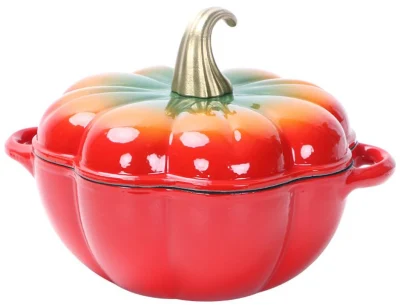porcelain cast iron cookware
The Benefits of Porcelain Cast Iron Cookware
In the world of cookware, porcelain cast iron has emerged as a favorite choice among home chefs and culinary enthusiasts alike. This innovative material combines the durability of cast iron with the aesthetic appeal and non-stick qualities of porcelain. In this article, we will explore its unique features, benefits, and why it deserves a place in your kitchen.
What is Porcelain Cast Iron Cookware?
Porcelain cast iron cookware is made from cast iron that has been coated with a layer of porcelain enamel. This process not only enhances the appearance of the cookware but also adds a non-reactive surface, making it an ideal choice for a variety of cooking tasks. The cast iron provides excellent heat retention and even cooking, while the porcelain enamel offers a wide array of colors and finishes, allowing for both functionality and style.
Advantages of Porcelain Cast Iron Cookware
1. Heat Distribution and Retention One of the primary advantages of cast iron cookware, including porcelain enameled varieties, is its exceptional heat distribution and retention capabilities. This means that food cooks evenly, reducing the chances of hot spots that can lead to burnt or undercooked areas. Whether you're searing meat, baking bread, or simmering sauces, porcelain cast iron is reliable for consistent results.
2. Versatility Porcelain cast iron cookware is incredibly versatile. It can be used on a variety of heat sources, including gas, electric, induction, and even in the oven. This makes it suitable for a multitude of cooking techniques, from stovetop searing to baking casseroles in the oven. Many pieces are also designed to go from the stovetop directly to the table, allowing for a seamless transition from cooking to serving.
porcelain cast iron cookware

3. Non-Reactive Surface Unlike traditional cast iron, which can react with acidic foods like tomatoes or vinegar, the porcelain enamel coating provides a non-reactive surface. This means you can cook a wider range of dishes without worrying about altering the flavor or quality of your ingredients. Whether you’re making a rich tomato sauce or a delicate fruit compote, porcelain cast iron won't interfere with the taste.
4. Easy to Clean The smooth, glassy surface of porcelain enamel makes cleaning a breeze. Unlike traditional cast iron cookware, which often requires a specific cleaning process and seasoning to maintain its non-stick qualities, porcelain cast iron can typically be washed with mild detergent and a non-abrasive sponge. Many pieces are even dishwasher safe, although hand washing is often recommended to preserve the finish.
5. Aesthetic Appeal Beyond functionality, porcelain cast iron cookware is undeniably attractive. Available in various colors and designs, these pieces can enhance your kitchen decor and serve as striking serving dishes. Whether you prefer a classic look or something more modern and colorful, there is a porcelain cast iron option to suit your taste.
Caring for Porcelain Cast Iron Cookware
To ensure the longevity of your porcelain cast iron cookware, it is essential to care for it properly. Avoid using metal utensils, as they can scratch the enamel coating. Instead, opt for wooden, silicone, or plastic utensils. Also, while these pieces are generally resistant to chipping, it’s wise to handle them with care to prevent damage. After use, allow the cookware to cool before washing to avoid thermal shock, which can cause cracking.
Conclusion
Porcelain cast iron cookware stands out as a perfect blend of durability, functionality, and aesthetic appeal. Its ability to provide even cooking, non-reactive surfaces, and easy cleanup makes it a valuable addition to any kitchen. Whether you're a seasoned chef or a cooking novice, investing in high-quality porcelain cast iron pieces can elevate your culinary experience. With proper care, these beautiful and versatile cookware options can serve you well for many years, making them a worthwhile investment for your kitchen.
-
Why Every Home Cook Needs a Cast Iron Meat PressNewsNov.12,2024
-
Unlock Perfectly Seared Steaks with the Cast Iron Meat PressNewsNov.12,2024
-
Master the Art of Cooking Thick Cuts of Meat with a Cast Iron Meat PressNewsNov.12,2024
-
How to Care for Your Cast Iron Meat Press: Tips for Longevity and PerformanceNewsNov.12,2024
-
How a Cast Iron Meat Press Enhances the Flavor and Texture of Your BurgersNewsNov.12,2024
-
Roasting Pan for Perfect MealsNewsNov.04,2024
-
Perfect Skillet for SaleNewsNov.04,2024
